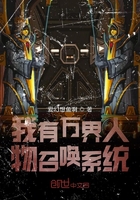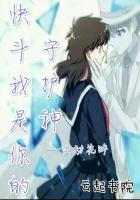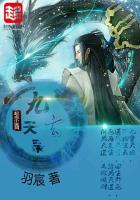Their great day came. Clear sunlight shone over the town, the hills and the brown waters of the Alabama. It was a peculiarly Southern country, different, Harry thought, from his own Kentucky, more enthusiastic, perhaps, and less prone to count the cost. The people had come not only on the railroad, but they were arriving now from far places in wagons and on horseback. Men of distinction, almost universally, wore black clothes, the coats very long, black slouch hats, wide of brim, and white shirts with glistening or heavily ruffled fronts. There were also many black people in a state of pleasurable excitement, although the war--if one should come--would be over them.
Harry and his two young friends were anxious to visit Montgomery and take a good look at the town, but they did not ask for leave, as Colonel Talbot had already sternly refused all such applications. The military law continued to lie heavily upon them, and, soon after they finished a solid breakfast with appetites sharpened by the open air, they were ordered to fall into line. Arrayed in their fine new uniforms, to which the last touch of neatness had been added, they marched away to the town. They might see it as a company, but not as individuals.
They walked with even step along the grassy slopes, their fine appearance drawing attention and shouts of approval from the dense masses of people of all ages and all conditions of life who were gathering. Harry, a cadet with a small sword by his side, felt his heart swell as he trod the young turf, and heard the shouting and applause. The South Carolinians were the finest body of men present, and they were conscious of it. Eyes always to the front, they marched straight on, apparently hearing nothing, but really hearing everything.
They reached the houses presently and Harry saw the dome of the capitol on its high hill rising before them, but a moment or two later the Guards, with the Palmetto flag waving proudly in front, wheeled and marched toward the railroad station. There they halted in close ranks and stood at attention. Although the young soldiers remained immovable, there was not a heart in the company that did not throb with excitement.
Colonel Talbot and Major St. Hilaire were a little in advance, erect and commanding figures.
Other troops, volunteer companies, were present and they spread to right and left of the South Carolinians. Behind and everywhere except in the cleared space before them gathered the people, a vast mass through which ran the hum and murmur of expectancy. Overhead, the sun leaped out and shone for a while with great brilliancy. "A good omen," many said.
And to Harry it all seemed good, too. The excitement, the enthusiasm were contagious. If any prophet of evil was present he had nothing to say.
A jet of smoke standing black against the golden air appeared above a hill, and then came the rumble of a train. It was that which bore the President elect, coming fast, and a sudden great shout went up from the multitude, followed by silence, broken only by the heavy breathing of so many. Harry's heart leaped again, but his will kept his body immovable.
The rumble became a roar, and the jet of smoke turned to a cloud.
Then the train drew into the station and stopped. The people began a continuous shout, bands played fiercely, and a tall, thin man of middle years, dressed in black broadcloth, descended from a coach. All the soldiers saluted, the bands played more fiercely than ever, and the shouting of the crowd swelled in volume.
It was the first time that Harry had ever seen Jefferson Davis, and the face, so unlike that which he expected, impressed him. He saw a cold, gray, silent man with lips pressed tightly together. He did not behold here the Southern fire and passion of which he was hearing so much talk, but rather the reserve and icy resolve of the far North. Harry at first felt a slight chill, but it soon passed. It was better at such a time to have a leader of restraint and dignity than the homely joker, Lincoln, of whom such strange tales came.
Mr. Davis lifted his black hat to the shouting crowd, and bowed again and again. But he did not smile. His face remained throughout set in the same stern mold. As the troops closed up, he entered the carriage waiting for him, and drove slowly toward the heart of the city, the multitude following and breaking at intervals into shouts and cheers.
The Palmetto Guards marched on the right of the carriage, and Harry was able to watch the President-elect all the time. The face held his attention. Its sternness did not relax. It was the face of a man who had seen the world, and who believed in the rule of strength.
The procession led on to a hotel, a large building with a great portico in front. Here it stopped, the bands ceased to play, Mr. Davis descended from the carriage and entered the portico, where a group of men famous in the South stood, ready to welcome him. The troops drew up close to the portico, and back of them, every open space was black with people.
Harry, in the very front rank, saw and heard it all. Mr. Davis stopped as soon as he reached the portico, and Yancey, the famous orator of Alabama, to whom Harry had delivered his letters in Charleston, stepped forward, and, in behalf of the people of the South, made a speech of welcome in a clear, resonant, and emphatic tone. The applause compelled him to stop at times, but throughout, Mr. Davis stood rigid and unsmiling. His countenance expressed none of his thoughts, whatever they may have been. Harry's eyes never wandered from his face, except to glance now and then at the weazened, shrunken, little man who stood near him, Alexander H. Stephens of Georgia, who would take the oath of office as Vice-President of the new Confederacy. He had been present throughout the convention as a delegate from Georgia, and men talked of the mighty mind imprisoned in the weak and dwarfed body.















